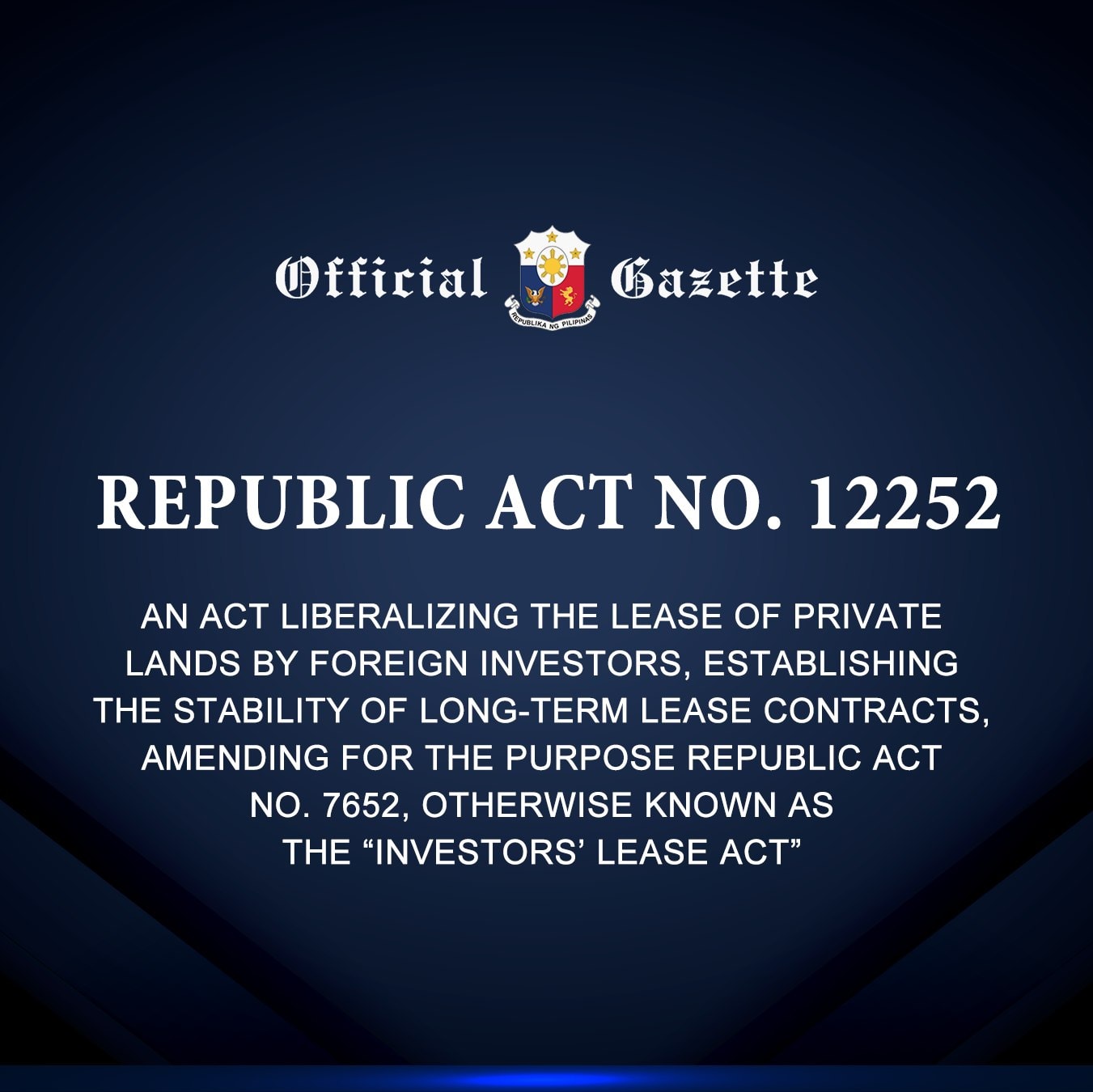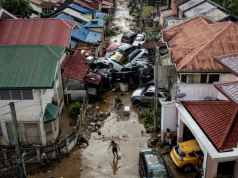History was made in the Philippine real estate on September 3, 2025. That day wasn’t just another date on the calendar; it was the moment the Philippines threw open the doors for foreign investors in a way we’ve never seen before. With Republic Act No. 12252 now signed into law, the message is loud and clear: the country is ready to play in the big leagues and attract serious global capital.

So, what’s the big deal? RA 12252 isn’t just a small update; it’s a game-changer. It shakes up the old Investors’ Lease Act by letting foreign investors lease private land in the Philippines for up to 99 years. Almost double the previous limit. And honestly, that kind of long-term security? It’s the kind of foundation that can spark real growth and stability. It’s like telling investors, “Hey, you’re welcome here, and you can settle in for the long haul.”
The Game-Changer: Stability through 99 Years
The previous maximum lease term of 50 years, renewable once for 25 years, totaling 75 years, was a source of great uncertainty that often drove away massive, long-term investments. The new, uninterrupted 99-year lease resolves this critical flaw by offering near-freehold security.
1. Why the 99-Year Lease Works:
- Bankability and Security: A 99-year lease gives international banks and lenders more confidence. It makes the lease a stable asset that can be sold, transferred, or used as loan security. This helps investors get the funding they need.
- Long-Term Planning: Big projects like resorts, industrial parks, and infrastructure need many years to plan and build. A long lease lets investors commit their money with confidence, knowing they have enough time to earn returns.
- Regional Competitiveness: This change puts the Philippines on the same level as countries like Singapore, Malaysia, and Indonesia. It makes the Philippines more attractive for foreign investments.
Key Provisions: Accountability and Protection
The law sets clear rules to protect both investments and national interests. It stops land speculation and ensures security for genuine investors.
| Requirement | Provision |
| Registration | Lease contracts must be registered with the Registry of Deeds and annotated on the title. This is the operative act that makes the lease binding and enforceable against all third parties and protects it from collateral attack. |
| Purpose | The leased area must be used solely for the approved and registered investment project. |
| Specific Investment | For tourism projects, there is a minimum investment requirement of USD 5 million, with 70% of that amount to be infused within three years of signing the contract. |
| Flexibility | The President, upon recommendation of the Fiscal Incentives Review Board (FIRB), may impose shorter lease periods for investments in vital services or critical infrastructure to protect national security. |
2. Enforcement and Accountability
RA 12252 is clear that this stability comes with accountability.
- Timely Implementation: If the approved investment project does not start within three years of signing the lease, the investor may lose their rights and benefits.
- Termination: The lease can end automatically if the foreign investor pulls out their registered investment or uses the land for purposes not allowed by the contract.
- Penalties: Breaking the law, such as leasing land for more than 99 years or using it illegally, can result in heavy fines from ₱1 million to ₱10 million and possible jail time.
Opportunities Unlocked for a Growing Economy
This legislation is designed to channel foreign capital into high-impact, priority sectors, directly supporting the nation’s industrialization and job creation goals:
- Industrial, Logistics, and Eco Zones: Building large-scale industrial estates, factories, and logistics hubs that require extensive long-term land security.
- Tourism Infrastructure: Development of world-class, generational resorts and hotels, backed by a minimum USD 5 million investment threshold.
- Agro-Industrial Enterprises: Supporting modern, large-scale farming, agro-processing, and agro-forestry ventures that need years to mature.
- Renewable Energy: Securing the massive land parcels needed for solar, wind, and other long-horizon clean energy projects.
- Technology and Data: Establishing permanent IT-BPM centers and critical data centers.
This influx of capital will boost economic growth. It will also help local businesses gain important knowledge and technology. This will raise the overall level of the Philippine market.
Trust, Growth, and Opportunity
RA 12252 is the key that unlocks the Philippines’ full potential as a premier investment hub in Southeast Asia. It finds a practical middle ground: giving foreign investors the long-term security they need for massive capital commitments while ensuring ultimate land ownership remains with Filipinos and that the investment is genuine, productive, and accountable.
The message is unmistakable. It’s more than just numbers; it’s about trust, growth, and long-term opportunities. The Philippines is not just open for business; it is offering a stable, secure foundation for multi-generational success.
Are you ready to be part of this new wave? Now is the time to commit to the biggest opportunities in Philippine real estate.
For those looking to navigate this promising landscape, HousingInteractive, the Philippines’ first property portal, is your trusted partner. Delivering comprehensive property solutions, HousingInteractive connects investors and developers with the best opportunities under RA 12252, helping you make informed decisions and maximize your investment potential.
| HousingInteractive is proud to announce a comprehensive series of articles designed to break down the nuances of the amended Investors’ Lease Act. Stay tuned as we analyze how RA 12252 is setting the stage for a new era of long-term, high-impact foreign investment in the Philippines. Next: What’s Allowed Under RA 12252: Not All Deals Are Equal |

























